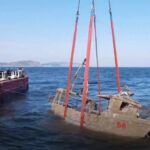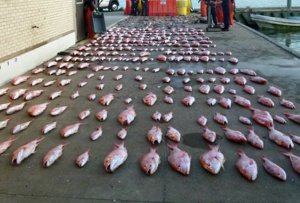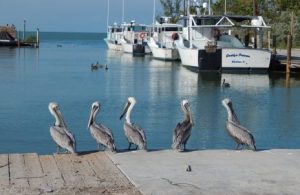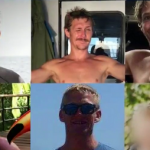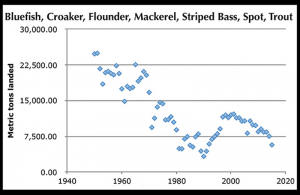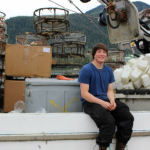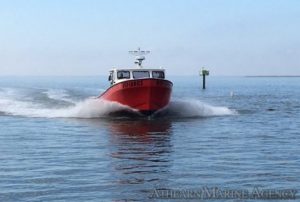Tag Archives: ICES Journal of Marine Science
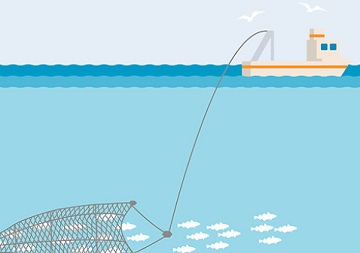
Banning Bottom Trawling Could Lead to Higher Carbon Footprints As Consumers Seek Alternatives
Banning demersal trawling would lead to higher CO2 emissions as consumers switch to more protein produced on land, according to a new scientific paper. Writing in the ICES Journal of Marine Science, researchers agree that demersal trawling can be highly destructive when not managed well, but when stocks are overfished, this is usually due to poor management. The scientists led by Prof Ray Hilborn at the University of Washington and involving researchers at Heriot-Watt and Bangor universities used relative benthic status to measure the impact of trawling on the seabed. The authors note that catching fish in the ocean “uses no pesticides or fertilizer, almost no fresh water, and no antibiotics”. >>click to read<< 09:20

Fisheries in Focus: Busting misconceptions about bottom trawling and its environmental impacts
In a new review paper published in the ICES Journal of Marine Science, researchers argue that well-managed bottom trawling produces sustainable and environmentally friendly food. A review paper is a roundup of all the latest info on a topic – a deep dive into a pool of research papers to pull out the most important aspects. In this case, Hilborn et al., 2023 went over all recent research on the environmental impacts of bottom trawling and boiled them down to four major impacts: Sustainability of target species, Impact on the seafloor, Bycatch and discards, Carbon emissions. The review also compared bottom-trawled seafood to other forms of food production. It concluded that well-managed bottom trawling can produce food with less environmental impact than chicken or pork production. Good, effective management is the key. >click to read< 11:44
Scientists have routinely exaggerated the “evil twin of climate change” aka ocean acidification
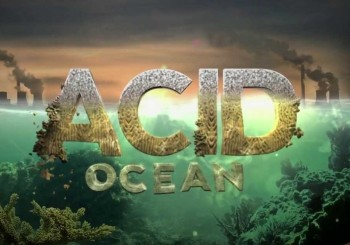 A new paper published in the ICES Journal of Marine Science puts the issue of “ocean acidification” to the test, and finds that there has been significant exaggeration in the issue. The paper is: Applying organized scepticism to ocean acidification research “Ocean acidification” (OA), a change in seawater chemistry driven by increased uptake of atmospheric CO2 by the oceans, has probably been the most-studied single topic in marine science in recent times. The majority of the literature on OA report negative effects of CO2 on organisms and conclude that OA will be detrimental to marine ecosystems. As is true across all of science, studies that report no effect of OA are typically more difficult to publish. Read the rest here 11:12
A new paper published in the ICES Journal of Marine Science puts the issue of “ocean acidification” to the test, and finds that there has been significant exaggeration in the issue. The paper is: Applying organized scepticism to ocean acidification research “Ocean acidification” (OA), a change in seawater chemistry driven by increased uptake of atmospheric CO2 by the oceans, has probably been the most-studied single topic in marine science in recent times. The majority of the literature on OA report negative effects of CO2 on organisms and conclude that OA will be detrimental to marine ecosystems. As is true across all of science, studies that report no effect of OA are typically more difficult to publish. Read the rest here 11:12
New Study Finds Fishermen’s Expertise is Rarely Considered by Scientists
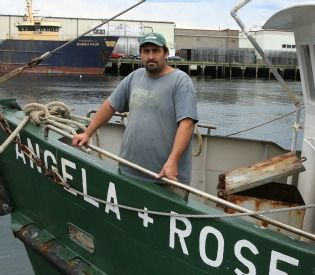 The study, published this week as Editor’s Choice by the ICES Journal of Marine Science shows that if scientists from Canada to Kiribati had worked more closely with fishermen over the last 100 years they could well have prevented infamous events like crashes in regional cod populations, as well as some of the rapid degradation we are currently seeing in tropical coral reef environments. Read more here 11:45 ICES article here
The study, published this week as Editor’s Choice by the ICES Journal of Marine Science shows that if scientists from Canada to Kiribati had worked more closely with fishermen over the last 100 years they could well have prevented infamous events like crashes in regional cod populations, as well as some of the rapid degradation we are currently seeing in tropical coral reef environments. Read more here 11:45 ICES article here
Speaking of Dr. Brian Rothschild,,,
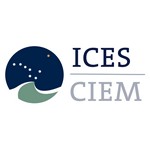
In addition to the news of he and fellow Patent applicant Glenn Chamberlain filing to the Patent and Trademark office, Dr. Rothschild, Emily F. Keiley, and Yue Jiao had a paper published at the ICES Journal of Marine Science, “Failure to eliminate overfishing and attain optimum yield in the New England groundfish fishery”. I’ve made a pass through it, and it is a fascinating read. If you follow New England fishery issues, you must review it. Read the report here 10:46

































